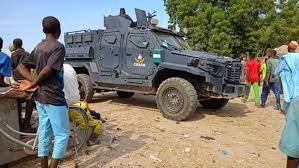JAS vs. ISWAP: The War of the Boko Haram Splinters Crisis Group
By International Crisis Group
What’s new? Jama’tu Ahlis Sunna Lidda’awati wal-Jihad (JAS) has gained ground in the intra-jihadist fighting in north-eastern Nigeria, halting the previous momentum of the Islamic State West Africa Province (ISWAP). In the course of 2023, JAS took most of the islands in Lake Chad, which ISWAP had controlled.
Why did it happen? Conflict between these Boko Haram splinters stems from differences in governance and treatment of civilians. JAS kills and steals from everyone; the more bureaucratic ISWAP generally spares Muslim non-combatants. Many JAS members surrendered to authorities or continued fighting instead of joining ISWAP after the death of JAS’s
leader in 2021.
Why does it matter? In the last two years, JAS and ISWAP may have visited more damage upon each other than the Lake Chad states have inflicted on the jihadists. Still, the splinters pose a significant threat. ISWAP is regrouping, while the revamped JAS is set to target civilians around the lake. What should be done? The Lake Chad governments will need to do more to prevail over the jihadists. They should mitigate risks to civilians by maintaining humanitarian assistance; expanding efforts to support defectors; improving airstrike precision; and reinvigorating regional security cooperation.


